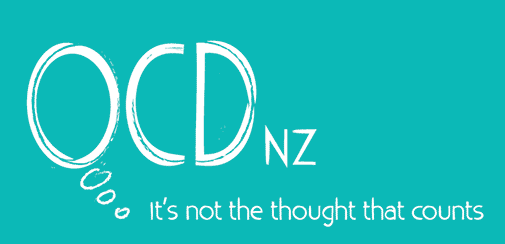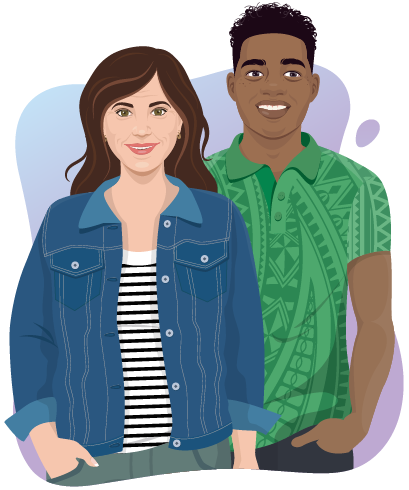
Obsessive Compulsive Disorder (OCD)
Obsessive Compulsive Disorder (OCD) is when we keep having unwanted thoughts that pop into our minds about scary or distressing things – such as thoughts of harm, feeling dirty, or any thoughts we don’t want to have. We call these ‘obsessive thoughts’. We might also do things over and over to try and get rid of these thoughts - such as routines, or things we say in our mind. We call these ‘compulsions’.
The good news is that OCD can be treated and many people who seek help can get better. In this course, we learn practical skills to tackle OCD, using one of the most effective approaches in the world, Cognitive Behavioural Therapy (CBT).
Start course nowHow effective is it?
Most people benefit from each lesson completed and show greater improvement when they complete the entire course.
Randomised controlled trials and effectiveness studies prove that the tool really works.
of people who benefited substantially
of people report they were no longer troubled by anxiety after completing the course
OCD can take many forms and not everyone will experience the same symptoms.
Read Yvonne's storyMy obsession was that I was a dangerous person – often called ‘Harm OCD’ – and my compulsions were to avoid things, look for evidence and seek reassurance.

Read Leah's storyI’ve probably had about five OCD themes – it’s a bit like wack-a-mole: you spend all your time and energy trying to get rid of one and another one just pops up.

Read Sam’s storyMy OCD is the type that most people think of when they say things like ‘I’m so OCD’, because it involves routines around hygiene. But the idea that being OCD is basically being a ‘clean freak’ undermines how debilitating and frightening it is.

Read Michelle’s storyI went from being very open and friendly, to pulling away from people and becoming more and more depressed. There was a lot of shame behind it, and a lot of self-rejection, so I felt like I couldn’t tell anyone.
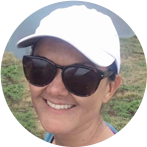
Step by step
- 1Take a quiz
- Take a short quiz to get an understanding of how you're feeling before starting the course.
- 2Illustrated stories
- Follow our characters as they gain some CBT skills and learn to look after their mental health.
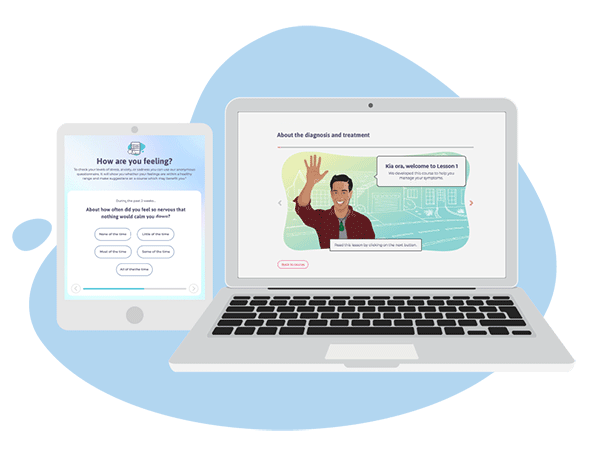
- 3Lesson
- Lessons and activities you can download to practise the skills learnt in each story.
- 4Tools & Tips
- Additional activities and information you can download and complete between lessons.
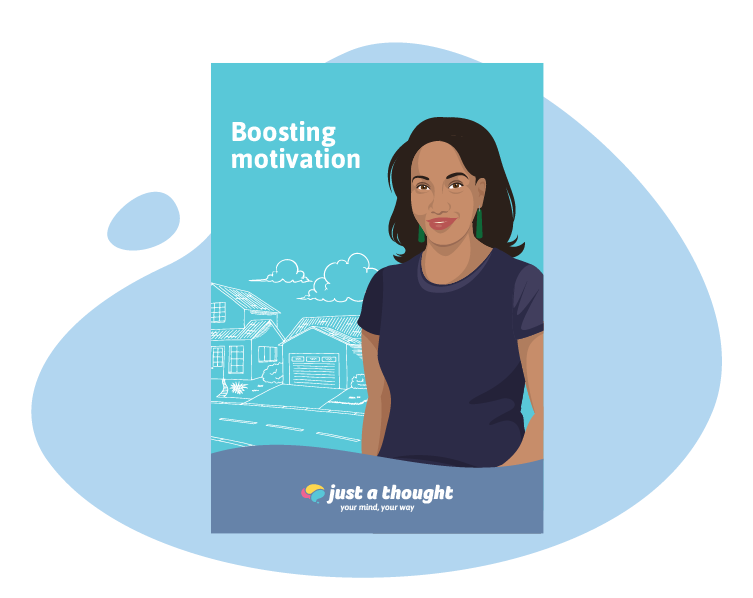
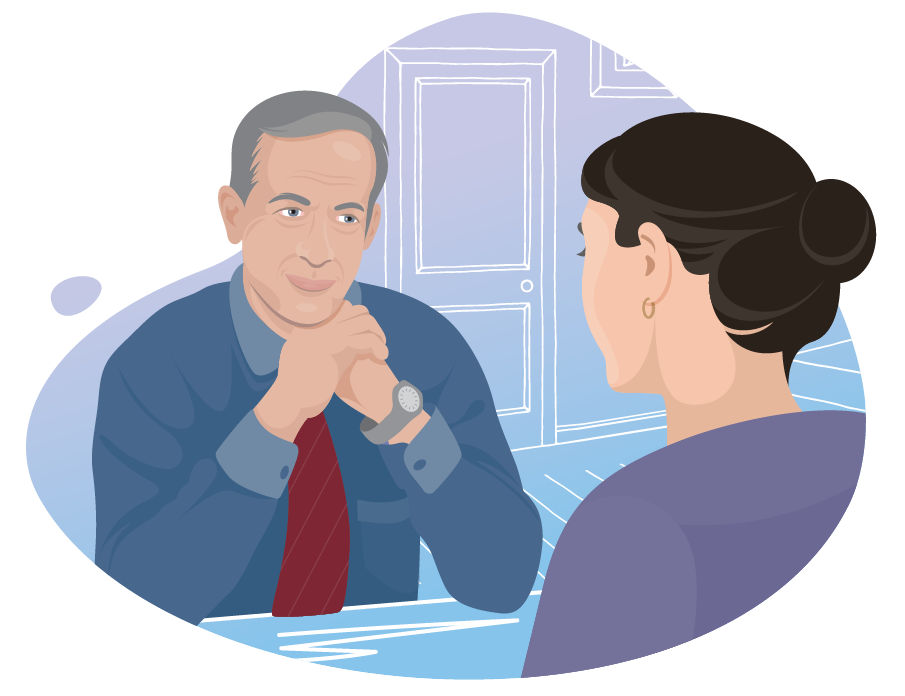
What type of support will I receive?
The amount of support you receive will depend on how you choose to do this course. If the healthcare professional you are working with prescribes it for you, they will receive updates on your wellbeing and progress so they can support you.
If you choose the self-care method, you won't get support from your health professional. The self-care method is designed to enhance motivation and self-reliance. Provided you complete all parts of the course, your results from the self-care method will be as good as with supervision.
How long will it take?
You can take this free course at your own pace. It is best to do one lesson every week or two, so you have time to practise and revise the new skills you've learnt. After you've finished, we'll keep your account open so you can revisit the course at any time.
Give it a try now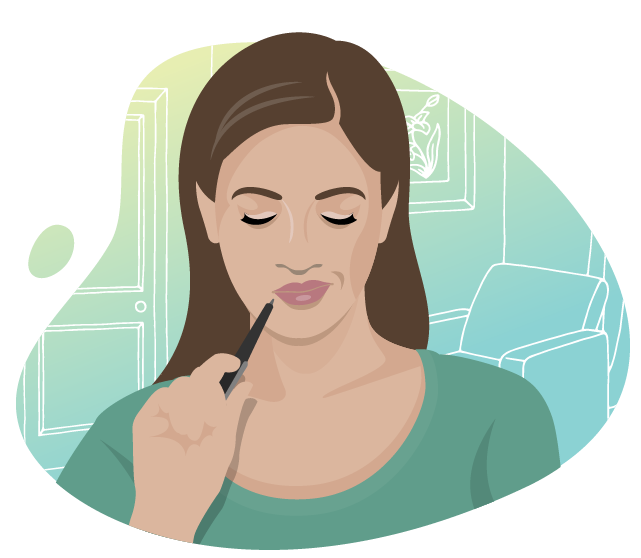
 Part 1
Part 1